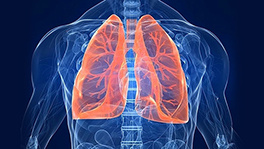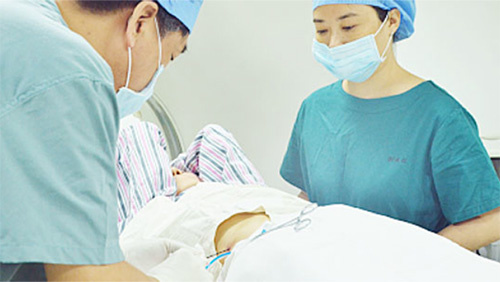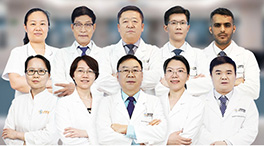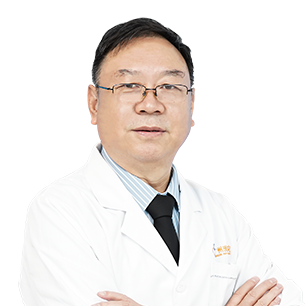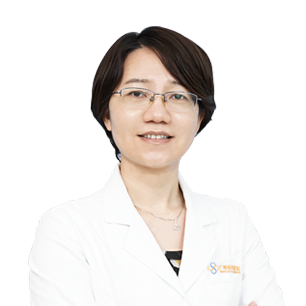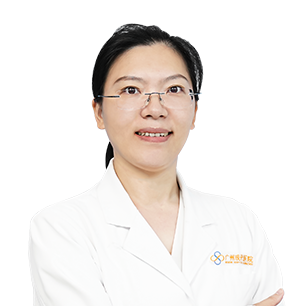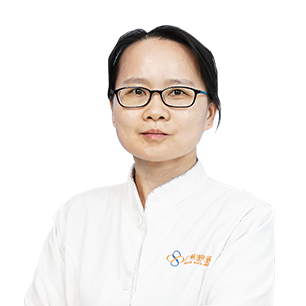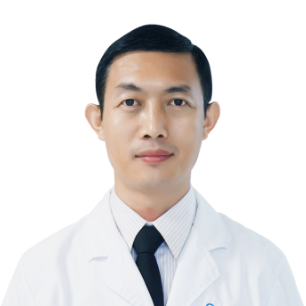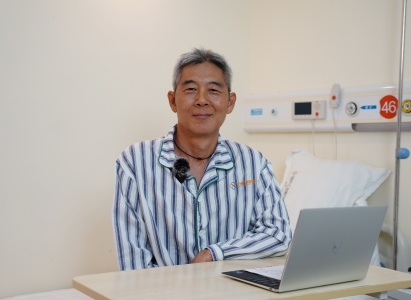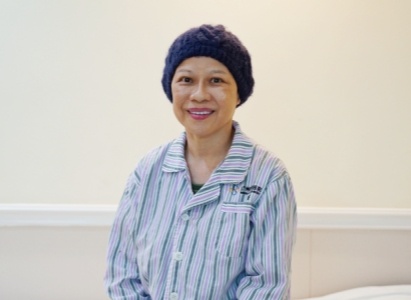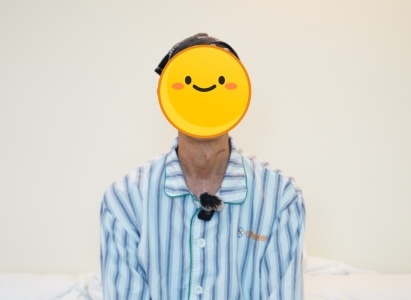 2025-08-08
2025-08-08 Share
Share
On August 5, 2025, the 5th ASEAN International Integrative Oncology Medicine Session • Malaysia jointly organized by the Chinese Anti-Cancer Association (CACA) and the World Association of Integrated Oncology (WAIO), and hosted by the CACA “Belt and Road” International Oncology Training Co-construction Unit (Guangzhou Modern Cancer Hospital), was grandly held in Malaysia. With the theme of "United through Integration," the forum focused on the global trend of international development in oncology, bringing together medical elites from China and Malaysia, as well as authoritative experts and cancer-fighting forces from both countries, to promote the localized practice of integrated oncology concepts in the ASEAN region.
As an important milestone for China’s integrated oncology to go global, this forum vividly showcased the charm of Chinese anti-cancer wisdom on the international stage. The event attracted participation from officials from the Malaysian Ministry of Health and Ministry of Education, medical experts from the ASEAN region, representatives from cancer prevention and treatment institutions, cancer survivors, and multiple mainstream media outlets. Over 200 people gathered to discuss new anti-cancer concepts and envision new prospects for cooperation.
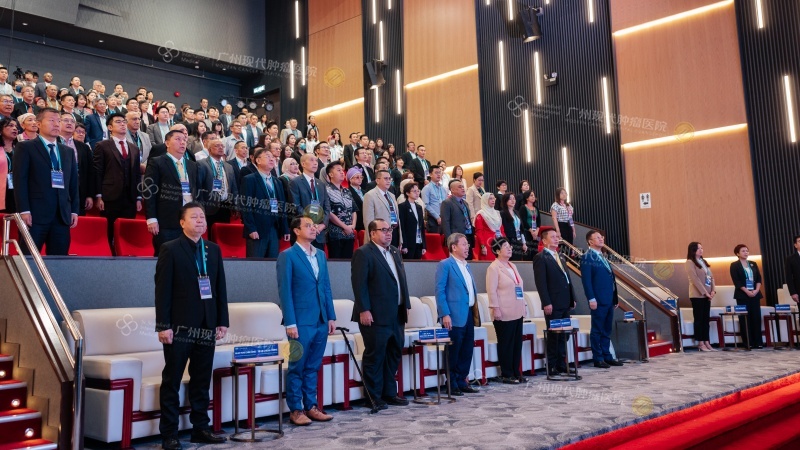
Conceptual Resonance: Integrated Oncology Illuminates the Future of Cancer Control
At the beginning of the forum, Academician Fan Daiming, President of the Chinese Anti-Cancer Association (CACA), the Asian Oncology Society (AOS), and the World Association of Integrated Oncology (WAIO), delivered a video speech: “Cancer remains a major threat to human health. Integrated oncology, with its concepts of multidisciplinary integration and whole-cycle management, is gradually benefiting patients worldwide. CACA has always been committed to building bridges for international cooperation and promoting regional collaborative anti-cancer development. In recent years, CACA and WAIO have continuously expanded their cooperation footprint in the ASEAN region. In 2023, the ‘CACA·Belt and Road Integrated Oncology Training Base’ was officially established. Since then, 220 CACA guideline training sessions have been successfully held, 90 international medical delegations have been received, and remote consulting services have been provided to over 2,800 overseas patients, providing solid support for the localized implementation of integrated oncology concepts in the region. Malaysia, as a core country in ASEAN and an important hub for promoting international medical cooperation under the ‘Belt and Road’ initiative, we expect to further unite the wisdom of Asian experts through this forum, promote the localized practice of integrated oncology, and jointly inject new impetus into the regional anti-cancer cause.”
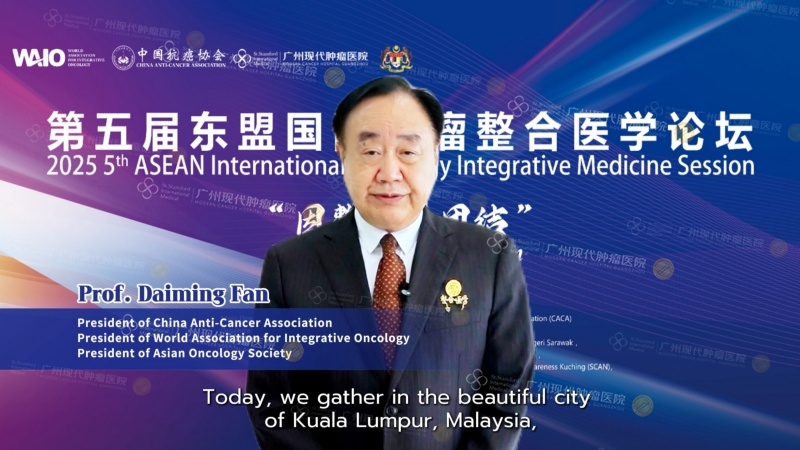
(Academician Fan Daiming delivering a video speech)
YB Dato Sri Sim Kui Hian, Deputy Prime Minister of Sarawak and Minister of Public Health of Malaysia, emphasized in his speech that this forum demonstrated Sino-Malaysian anti-cancer cooperation and promoted the patient-centered concept of integrated medicine. He noted that the CACA guidelines would help improve medical quality in ASEAN. Lee Chean Chung, Deputy Minister of the Malaysian Ministry of Education and Member of Parliament, expressed his expectation that this grand event would promote knowledge sharing and regional cooperation to jointly draw a new blueprint for anti-cancer efforts.
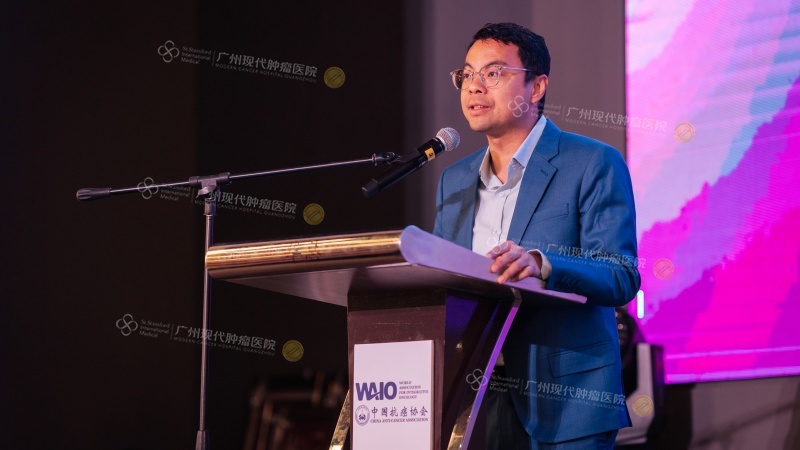
(Lee Chean Chung, Deputy Minister of the Malaysian Ministry of Education and Member of Parliament, delivering a speech)
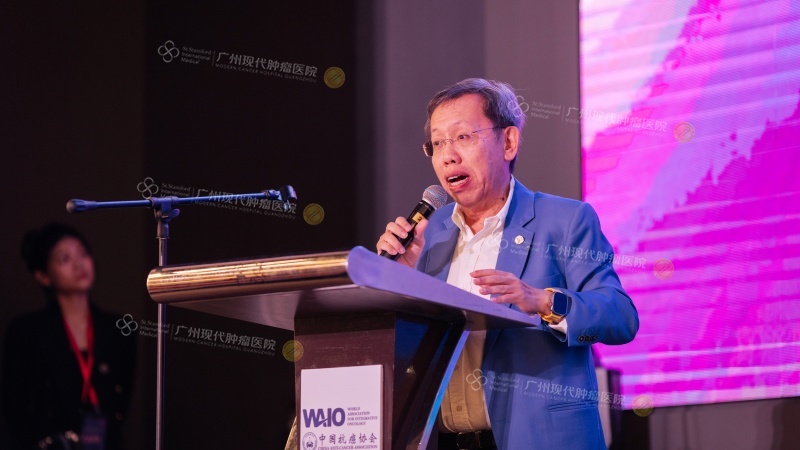
(YB Dato Sri Sim Kui Hian, Deputy Prime Minister of Sarawak and Minister of Public Health of Malaysia, delivering a speech)
After the opening ceremony, Professor Wang Ying, Vice President of the Chinese Anti-Cancer Association, Secretary-General of the Asian Oncology Society, and Secretary-General of the WAIO, presented souvenirs to the three opening speakers on behalf of the organizers and took group photos with them, expressing high gratitude.
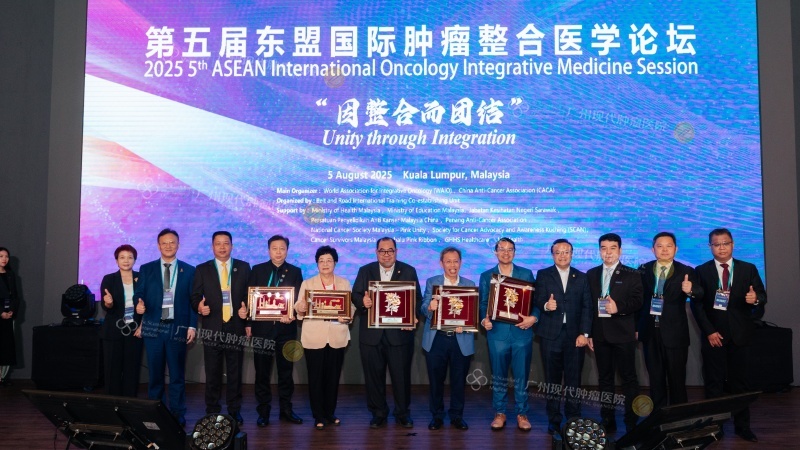
Precision and Minimally Invasive Approaches Lead Innovation, and Multidisciplinary Integration Promotes Development
This forum covered multiple cutting-edge topics, including cancer prevention, early screening, minimally invasive treatment, imaging integration, and regional medical collaboration, focusing on the treatment trend that emphasizes both precision and integration. Among them, Professor Wang Ying delivered a keynote report titled “The Current Situation and Challenges of Cancer Prevention and Treatment in China.” She pointed out that although China bears a heavy cancer burden, thanks to policy support and medical advancements, the five-year survival rate has increased to 43.7%. Integrated medicine and international cooperation are playing an increasingly important role.
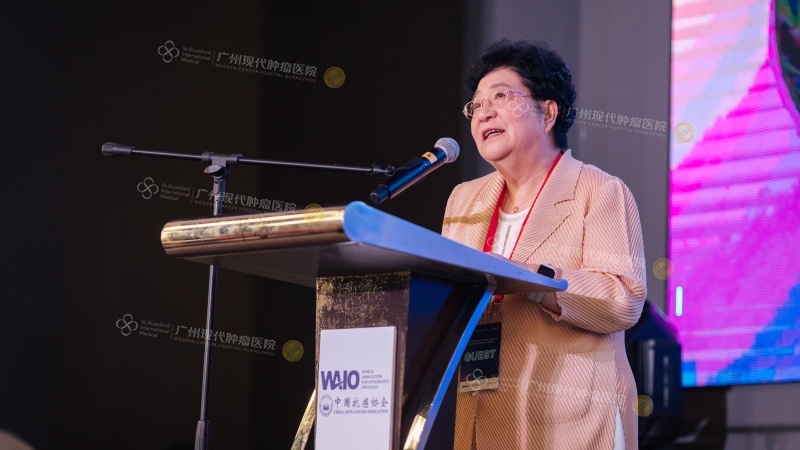
(Professor Wang Ying giving a speech)
Professor Lv Xiaogang, a gynecological oncology expert from Guangzhou Medical University Cancer Hospital, gave a presentation titled “Precision and Minimally Invasive Treatment of Breast Cancer,” emphasizing the application of minimally invasive techniques in advanced breast cancer and the importance of individualized diagnosis and treatment and patient participation in decision-making.
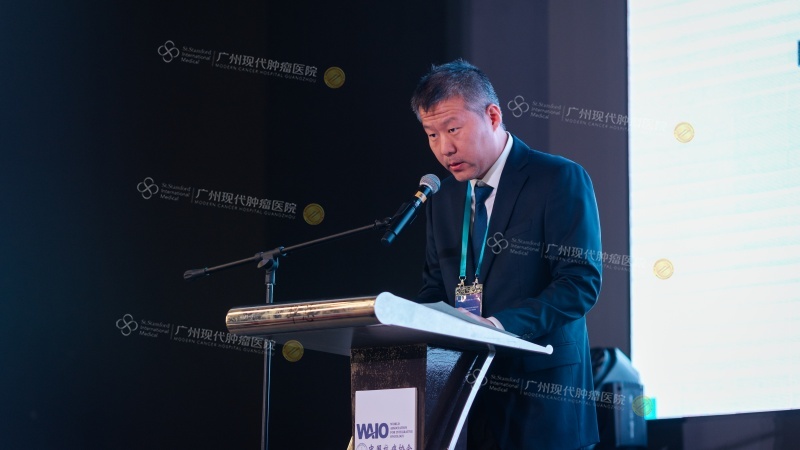
(Professor Lv Xiaogang from Guangzhou Medical University Cancer Hospital sharing insights)
Professor Rozi Mahmud, a radiology professor from Universiti Putra Malaysia, mentioned in his presentation “Clinical Connections between Radiology and Integrated Medicine” that imaging techniques can evaluate the integrated therapeutic effects of nutrition and acupuncture, and radiology will play a more crucial role in individualized treatment.
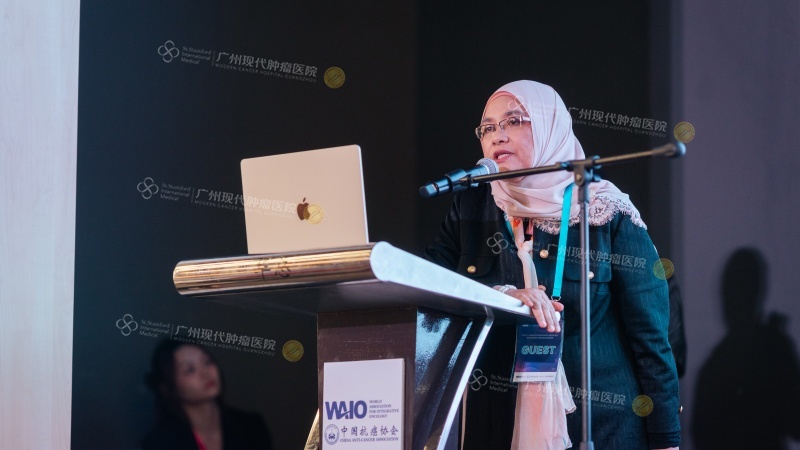
(Professor Rozi Mahmud from Universiti Putra Malaysia sharing insights)
Muhammad Ash-Shafhawi Adznan, a general surgeon from KPJ Healthcare, shared the diagnosis and treatment progress of colorectal and peritoneal malignancies, emphasizing the importance of early screening, precise staging, and comprehensive treatments such as HIPEC in improving prognosis.
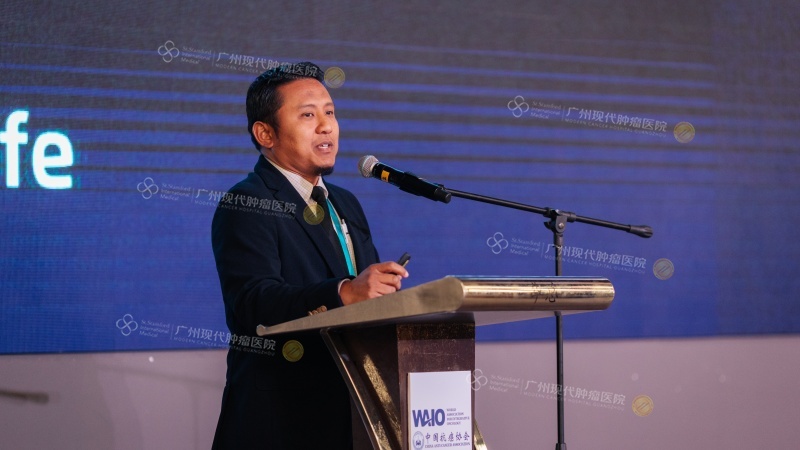
(Muhammad Ash-Shafhawi Adznan, a general surgeon from KPJ Healthcare, sharing insights)
Dr. Vijaendreh Subramaniam, Director of the Malaysian Society of Integrated Oncology Diagnosis and Treatment, shared the transformation of local integrated treatment pathways, emphasizing the far-reaching significance of interdisciplinary integration and precision medicine in improving patients’ quality of life.
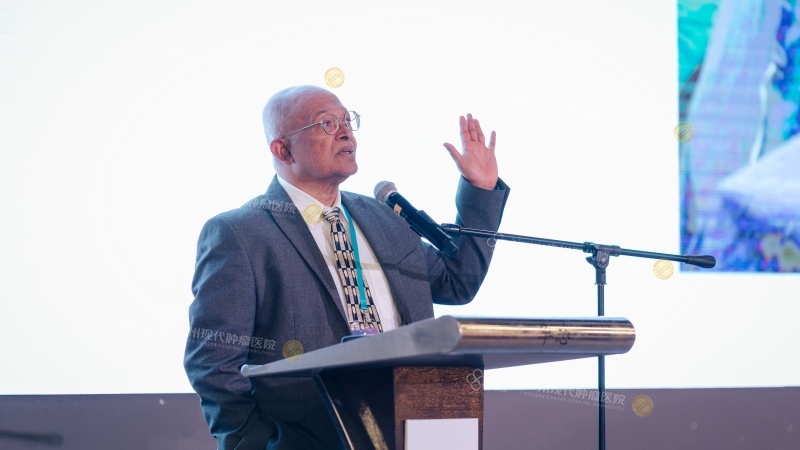
(Dr. Vijaendreh Subramaniam, Director of the Malaysian Society of Integrated Oncology Diagnosis and Treatment, sharing insights)
Dr. Adam Ngu King Hein from the Sarawak State Health Department of Malaysia gave a presentation titled “Challenges and Progress of Integrated Oncology in Sarawak.” He pointed out that cancer cases in Sarawak continue to rise, necessitating the accelerated construction of cancer centers, the promotion of integrated treatment and palliative care, and the advancement of integrated development.
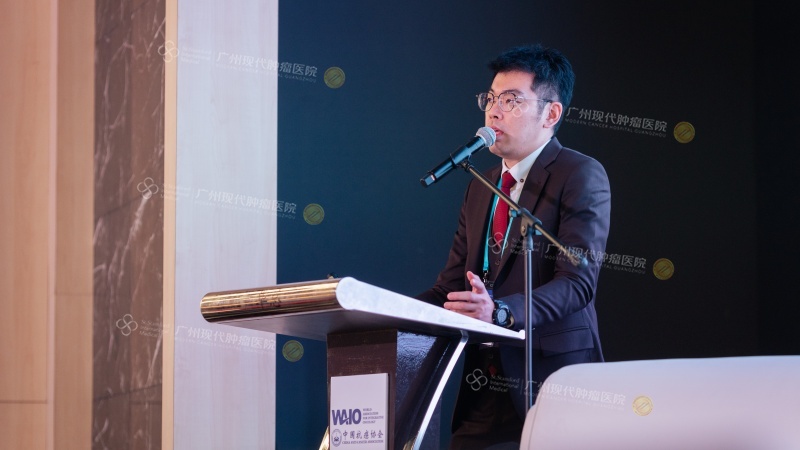
(Dr. Adam Ngu King Hein from the Sarawak State Health Department of Malaysia sharing insights)
Dr. Wilfredo Fernando Cortizo, Managing Director of ATPC at Nasdaq, introduced the “Progress in Multi-Molecular Gene Detection for Cancer,” emphasizing that AI-driven molecular detection technologies provide higher precision and efficiency for early cancer identification and individualized treatment.
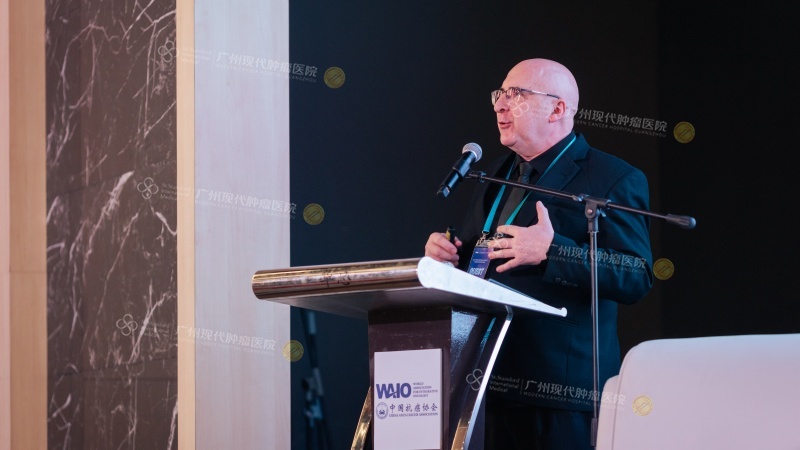
(Dr. Wilfredo Fernando Cortizo, Managing Director of ATPC at Nasdaq, sharing insights)
Professor Wang Ligen from Modern Cancer Hospital Guangzhou gave a special report titled “Special Techniques and Characteristics of Cancer Treatment,” systematically introducing the tumor control effects of minimally invasive techniques such as particle implantation and cryoablation in advanced cancer.
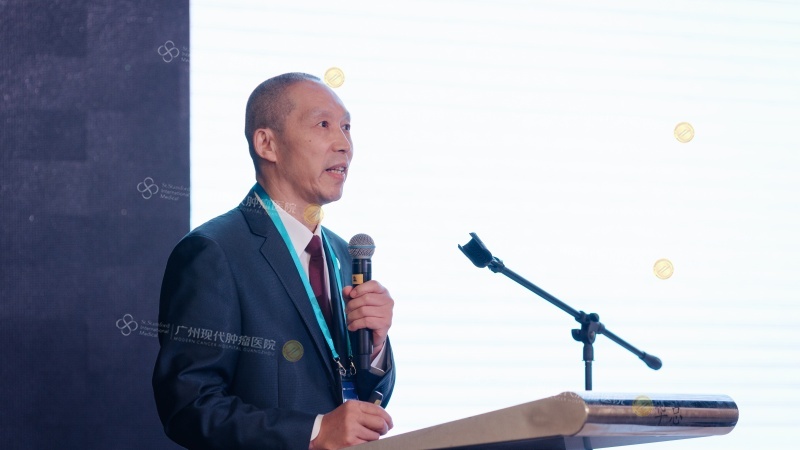
(Professor Wang Ligen from Modern Cancer Hospital Guangzhou sharing insights)
Building a Community with a Shared Health Future and Marching Towards an Integrated Future Together
The forum was not only a platform for technical exchanges but also an important opportunity to deepen regional collaboration. During the roundtable discussion, experts from China and Malaysia engaged in in-depth discussions on “Advanced Cancer Treatment Technologies in China and Southeast Asia,” exploring new cooperation models for resource sharing, talent training, and technology transfer.
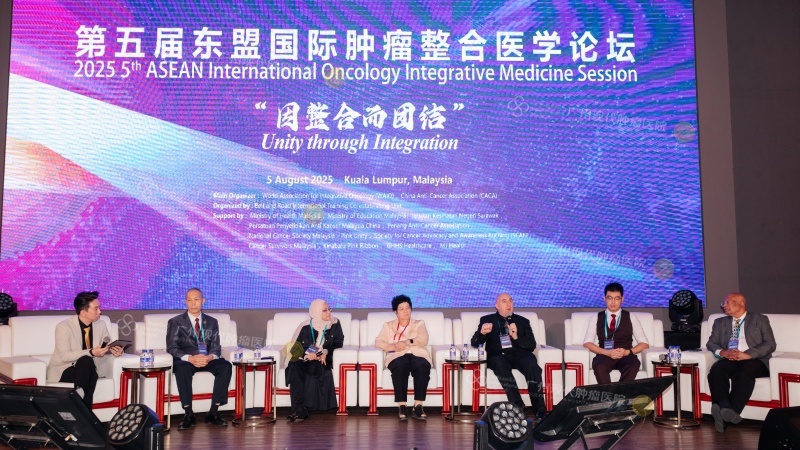
(Roundtable Discussion)
Integrated medicine is people-oriented, integrating multidisciplinary resources and accommodating different cultural systems. With the advancement of the “Belt and Road” initiative, cancer prevention and treatment cooperation between China and ASEAN countries has entered a new stage of high-quality development. The Chinese Anti-Cancer Association will continue to work with regional partners to promote the implementation of CACA guidelines, strengthen whole-cycle management of cancer early screening, treatment, and rehabilitation, and safeguard the light of life with the power of integration.
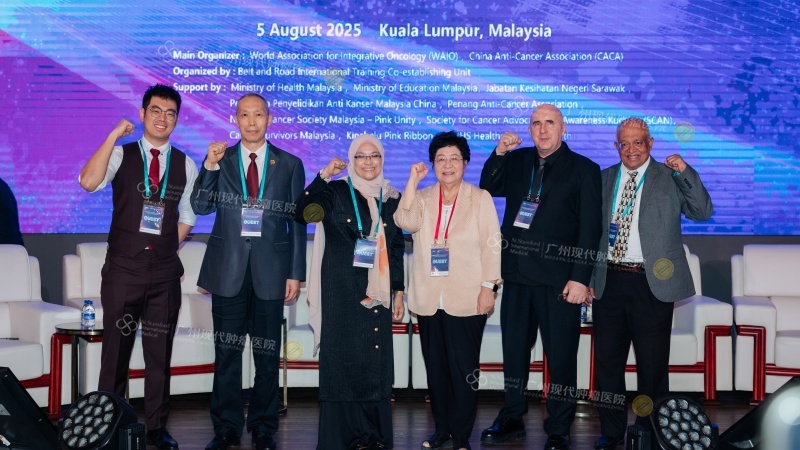
Combining Humanistic Care: Telling Anti-Cancer Stories and Transmitting Hope for Life
The forum specially set up a sharing session for “cancer survivors.” Four representatives of Malaysian cancer survivors who had sought medical treatment in China emotionally recounted their inspiring stories of how, when their conditions recurred and treatment options were limited, they traveled to Modern Cancer Hospital Guangzhou through an international referral platform and received minimally invasive treatments, resulting in a significant reduction in tumor lesions. They fondly recalled their treatment days in Guangzhou, expressing gratitude to Chinese doctors not only for providing advanced medical treatments but also for offering trust, respect, and spiritual support, which reignited their confidence in life.
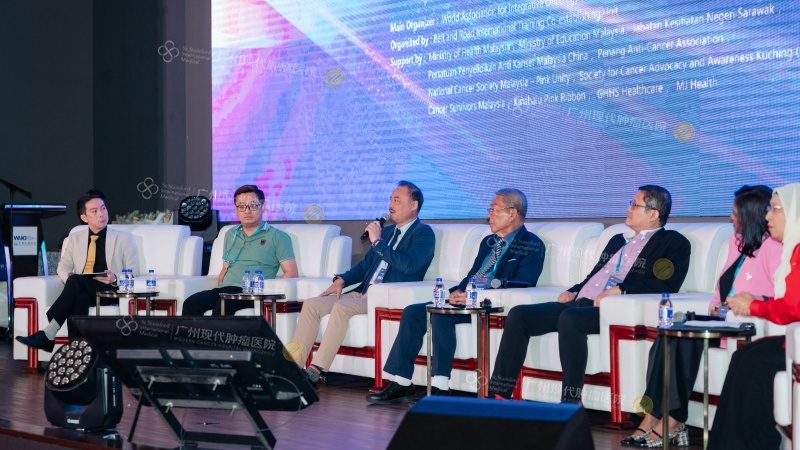
These stories of cancer survivors are not just personal anti-cancer journeys but also vivid examples of the implementation of integrated medicine concepts in cross-border treatment—a medical path that is not only about technology but also about people. Their firsthand experiences reflect how integrated medicine transcends national boundaries and breaks down the barriers between medicine and humanities.
After the sharing session, Professor Wang Ying presented souvenirs to the four cancer survivor representatives and took group photos with them, paying high tribute to their indomitable vitality. The audience applauded warmly, filling the entire forum with warmth.
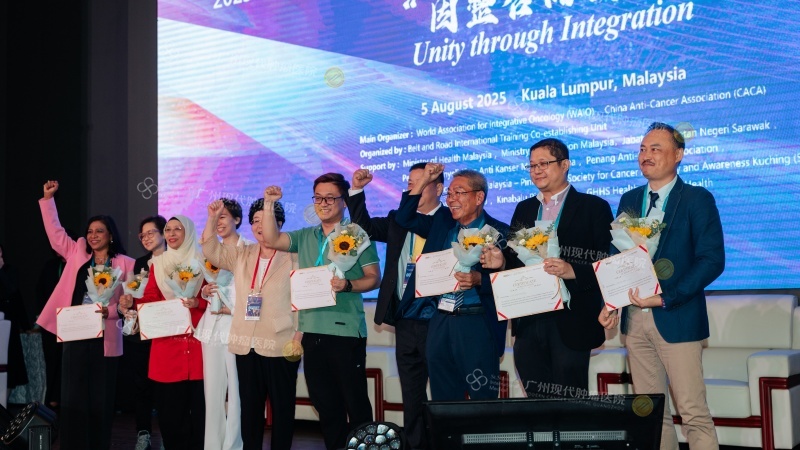
Cancer is a war without smoke, and every survivor is a seed of hope. The warmth and power of integrated medicine are breaking down barriers of geography, language, and resources, enabling high-quality medical care to transcend national boundaries and benefit more lives. It also allows more patients to see hope in despair and regain a new lease on life in difficult situations.
St. Stamford Night: Gratitude for Every Trust and Companionship
That evening, the “St. Stamford Night” dinner was warmly held. Professor Wang Ying, Vice President of the Chinese Anti-Cancer Association, and Mr. Lin Zhicheng, President of St. Stamford Group, jointly presented commemorative awards to the speakers, cancer survivor representatives, and representatives of cooperating institutions that had long supported the promotion of integrated oncology, expressing gratitude for their active participation in the forum, their high recognition of integrated medicine concepts, and their firm support for international anti-cancer cooperation.
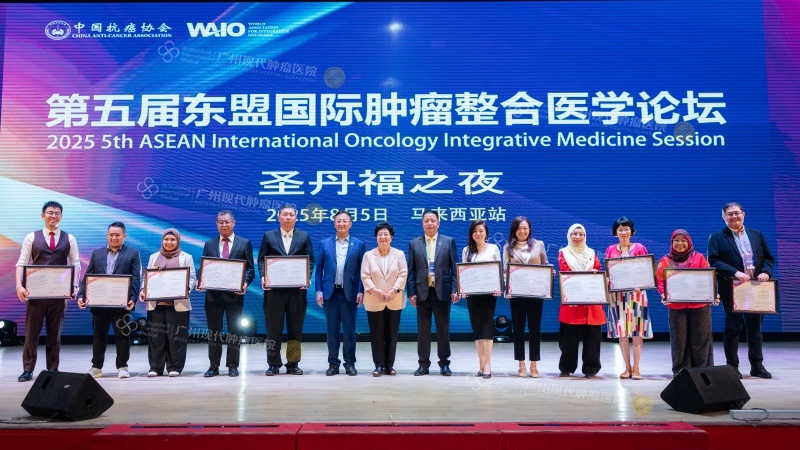
This evening was not only a tribute to past efforts but also a promise for future collaboration. It is precisely because of the dedicated investment and joint perseverance of experts from China and Malaysia that integrated oncology has been able to transcend linguistic, institutional, and cultural boundaries and continue to bear fruit in Southeast Asia. St. Stamford Night not only conveyed gratitude but also witnessed unity—it was a warm appreciation event for all “cancer fighters” and drew a hopeful and successful conclusion to this forum.
Dreaming and Moving Forward Together: Drawing a New Blueprint for International Anti-Cancer Cooperation
The forum was not only a clash of academic ideas but also a deepening of medical exchange and cooperation between China and Malaysia. Professor Wang Ying, Vice President of the Chinese Anti-Cancer Association, stated that in the future, they would continue to promote the localized practice of China’s integrated oncology experience in ASEAN countries, collaborate with local medical institutions in scientific research, talent training, and popular science education, and strive to build an influential academic platform for integrated oncology in the ASEAN region.
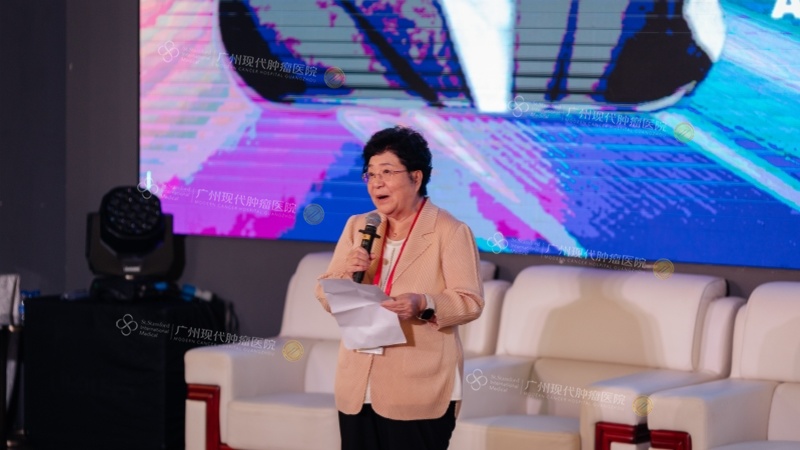
(Professor Wang Ying delivering a closing speech)
Today, cancer remains a major threat to human health. Integrated oncology, with its concept of “breaking down barriers, connecting all levels, and integrating Chinese and Western medicine,” injects new hope into the global anti-cancer cause and lays a solid foundation for establishing a more efficient, inclusive, and people-benefiting medical cooperation platform in Southeast Asia.
The successful convening of the 5th ASEAN International Integrative Oncology Medicine Session • Malaysia not only promotes the in-depth implementation and localization of integrated medicine concepts in Southeast Asia but also marks that collaborative anti-cancer efforts between China, Malaysia, and other regional countries have entered a deeper and broader dimension, opening a new chapter in global cancer prevention and treatment.


